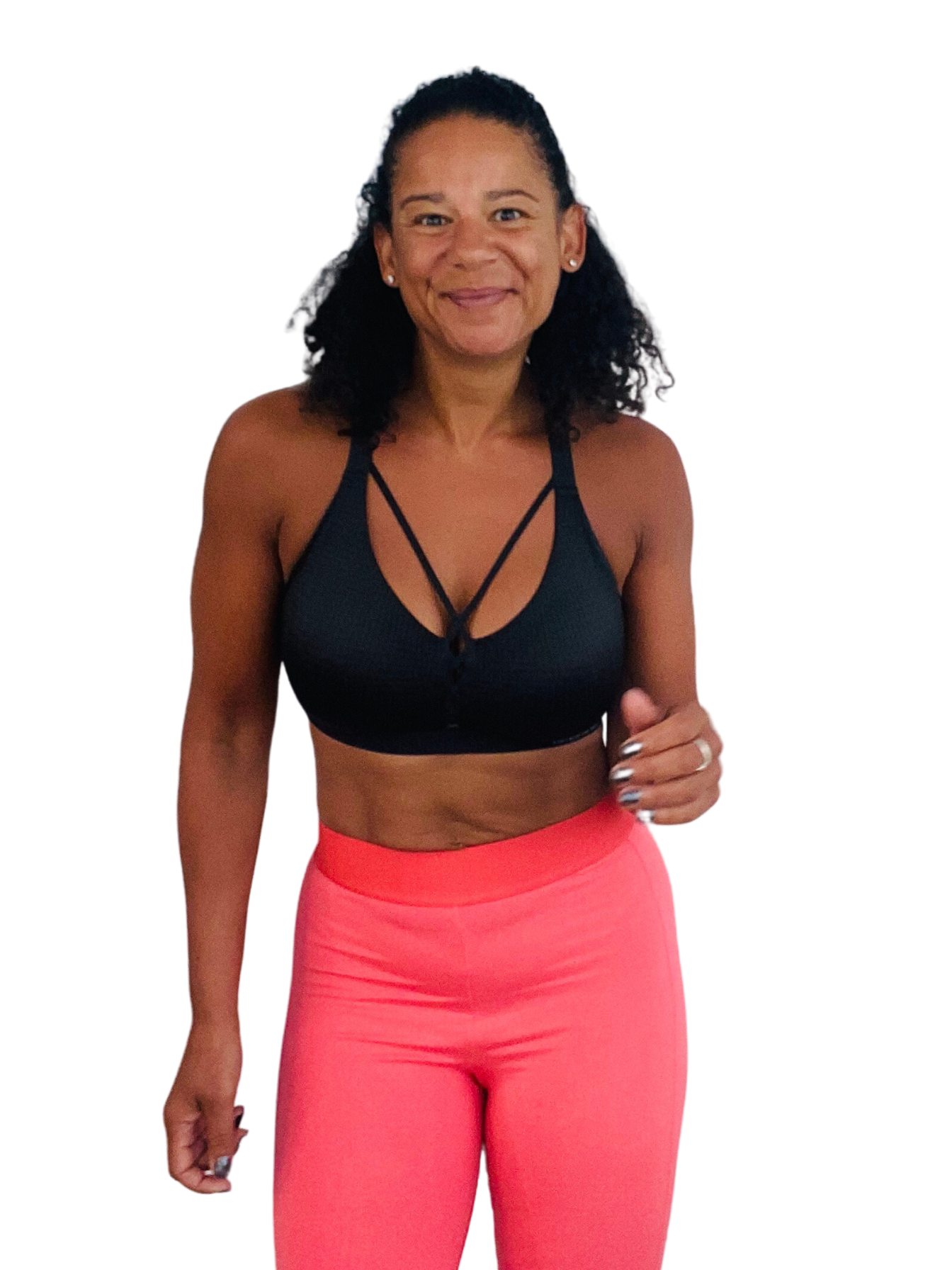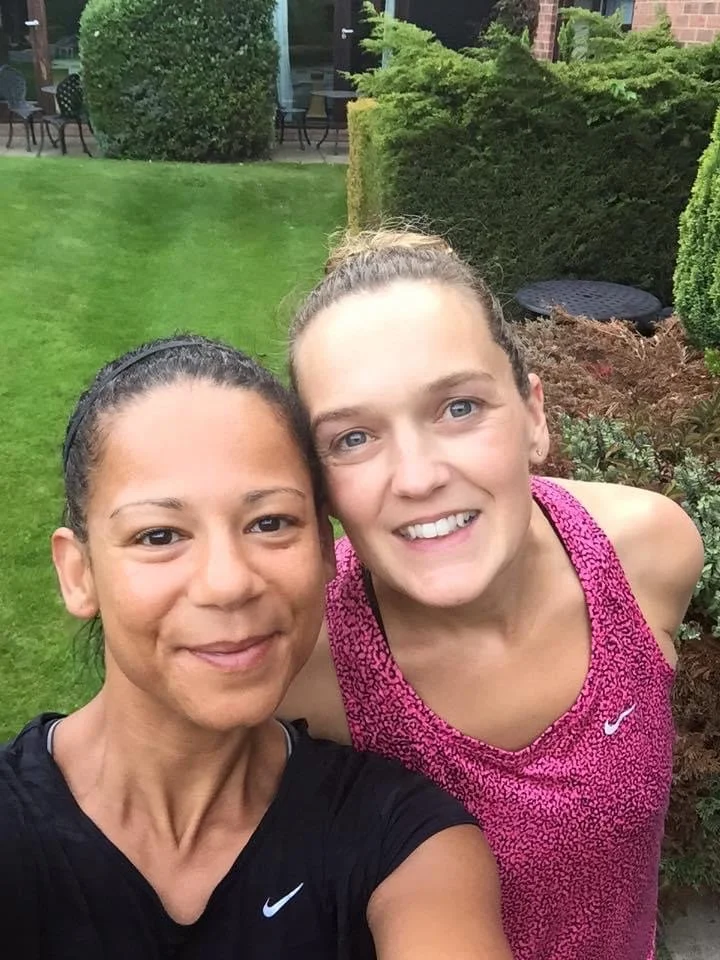The Meno Years
WHAT MOTIVATED OTHERS TO GET IN TOUCH
MenoStrong
Menopause is a natural part of the ageing process for all of us ladies and can begin in our mid-40s. It’s a hot topic at the moment, and there are many great resources available to support you on this journey.
The concept of The Meno years, The circle of life, is one that reminds us to embrace and cherish each stage of a woman's journey.
When I started my exercise career, Lucy, my youngest, was a baby, and my eldest, Hannah, was a toddler. I was in my 30s, and my body was crying out to regain fitness.
I wanted to sweat! Running, aerobics, high-intensity interval training, and Zumba were part of my weekly routine.
Fast forward to now, my girls are both independent and my body…well, its craving a different kind of fitness routine. Forget half marathons and hours of HIIT. As I go through the inevitable hormonal changes, I’m more aware that my 50 year old body needs a change of pace.
Yes, I do love HIIT, but recently, my body craves extra TLC, which includes focusing more on flexibility, mindful nutrition, functional movement, breath work, core and pelvic floor connection, and strength training.
Perimenopause is where I’m at right now; it’s the phase before menopause when the body prepares to stop producing eggs. As oestrogen and progesterone levels decrease, symptoms start to appear, causing physical and emotional changes.
This is a fantastic time to reach out for support!
Having someone who truly understands you can make a real difference and help you feel your very best.
Frequently Asked Questions During the Menopause Years
What exercise should I do?
In a nutshell, Learn to lift! Weight training offers numerous benefits as we progress through this period. Protecting our bones is vital, as hormonal changes can lead to a decrease in bone density, making them more susceptible to fractures and osteoporosis. However, lifting helps to counteract these effects.
This might not be a popular opinion, but it's advisable to reduce HIIT (high-intensity interval training) to no more than twice a week, as doing more can increase the stress accumulation on our sympathetic nervous system.
Instead, focus on LIIT, low-intensity interval training. Not only is it great for reducing the stress on your joints, but from a hormonal standpoint, during perimenopause, we need to balance our hormones, reduce cortisol levels that stress our bodies and focus on the parasympathetic nervous system, which restores our body to a calm and composed state.
Walking is fantastic for this! 10k steps a day is great, but often unrealistic if you have a sitting day job! So, do your best to increase your current efforts. Add fast interval walks or Jeffing to increase the heart rate. "Jeffing" refers to a training method where you alternate between running/ jogging and walking intervals. It's essentially a form of interval training, allowing for a more manageable and enjoyable experience, especially for beginners or those recovering from injuries.
Equally important is spending time on core activation, pelvic floor strength, breathing techniques and flexibility. PELVIC FLOOR WEAKNESS can rear its ugly head at this time!
What nutritional changes should I make? The decline in oestrogen during this phase is linked to decreased muscle mass. For this reason, my top advice is to increase your daily protein intake to at least 100g per day.
It can be challenging if you’re not accustomed to it, but try this tip: focus on prioritising protein at each meal.
Instead of having toast for breakfast, salad for lunch, and pasta for dinner, consider swapping to Greek yoghurt with seeds and fruit for breakfast, a whole chicken breast in a wrap for lunch, and meat with two vegetables plus carbohydrates, such as new potatoes, for dinner.
Foods that are high in protein include fish, meat, eggs, beans, pulses, and dairy products.
If you are vegan or vegetarian, it can be more challenging to reach 100g of protein per day; however, you can still find high-protein sources to increase your intake.
Additionally, you can add protein powders to yoghurts, smoothies, and baked goods like muffins and pancakes. Overnight oats are a firm favourite among clients.
Conclusion: Get moving and eat more protein!
Strong is the NEW formula.
Strength training is the key to maintaining muscle tone and bone density as we age, and I encourage all my female clients to embrace the benefits as we navigate our way through life’s transitions. I have seen first hand how weight training can improve confidence, boost energy and increase self esteem. Our clients from early 40’s to the over 70s all benefit from the right kind of program.
While hormonal changes can have an effect on your body’s ability to process proteins, engaging in strength training can help women build muscle and slow down the natural aging process. Strength training has a multitude of benefits, including improving cardiovascular health, increasing flexibility and balance, reducing stress levels, and definitely enhances self-confidence.
If YOU like ME are going through perimenopause or are in menopause let’s do this together let’s build a fabulous and fit future;
Where strength training is the norm.
Where lifting weights is something to be proud of.
Where weekly strength training sessions include exercises like squats, deadlifts, chest presses and planks.
Where preserving muscle mass and bone density is more important than what the scales say!
Where those creaky knees, and daily aches and pains are eliminated or reduced.
Where pelvic floor dysfunction is talked about openly, and individually tailored workout solutions are crafted to enable improvement.
Where beginning a pelvic floor and core strengthening program at any stage will improve symptoms.
Where consistent effort pays off even when times are tough or your mojo has taken a nosedive!
Where nutritional tweaks can reduce cravings, improve energy and support weight loss
Where YOU have the confidence that by embracing the 3 P's:
Positive attitude
Positive preparation
Positive action
YOU will be able to achieve POSITIVE RESULTS.
Together with my wonderful team, we're dedicated to empowering women of all ages, whether you're navigating or have already experienced menopause.
We help you build strength through lifting, boost your confidence with our friendly support, and enhance your body awareness through education and practice.
Whether you're just starting out or an experienced lifter seeking new challenges, we’re here to provide expert nutrition guidance and exercise support, giving you everything you need to safely and effectively focus on achieving your goals.
Feeling a bit daunted by the idea of starting a weightlifting program? No need to worry; we've got just the right solution for you!
Reach out to learn more about our popular Pure PT program, a fantastic starting point that many women love to choose!






